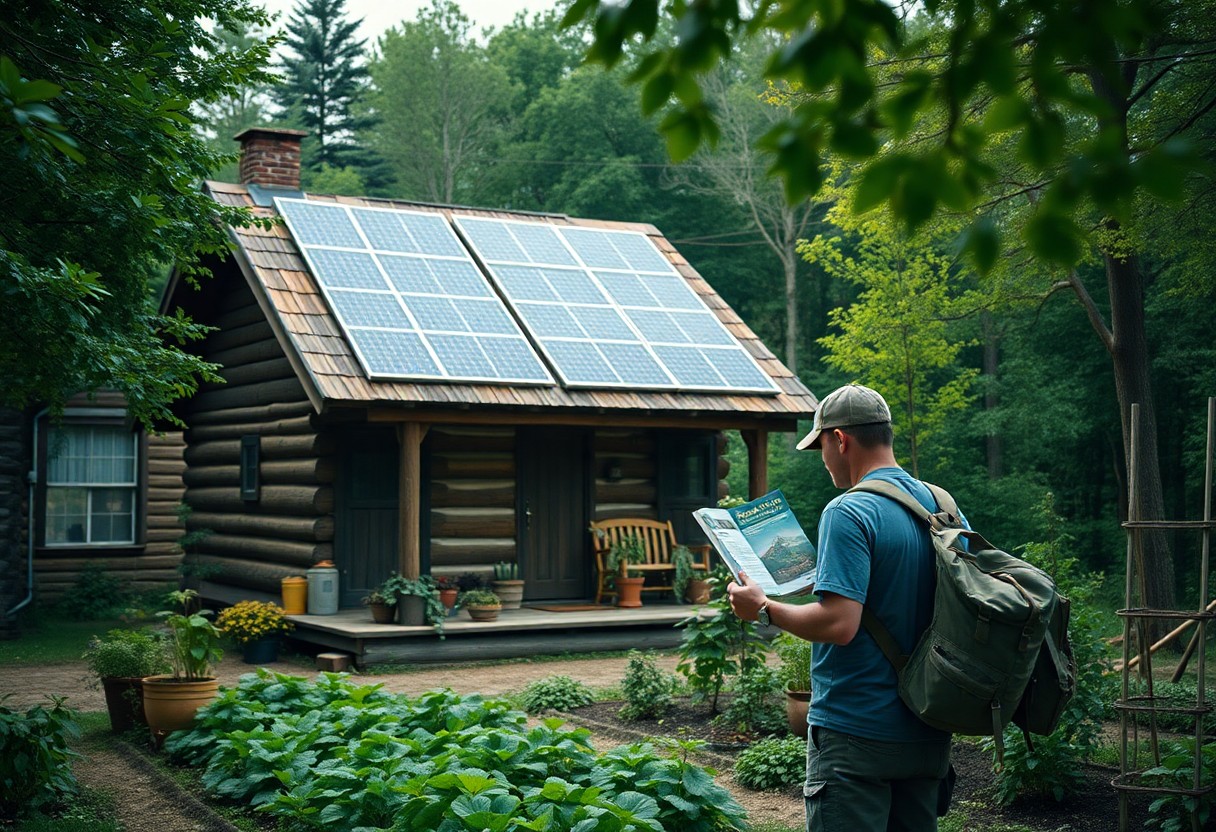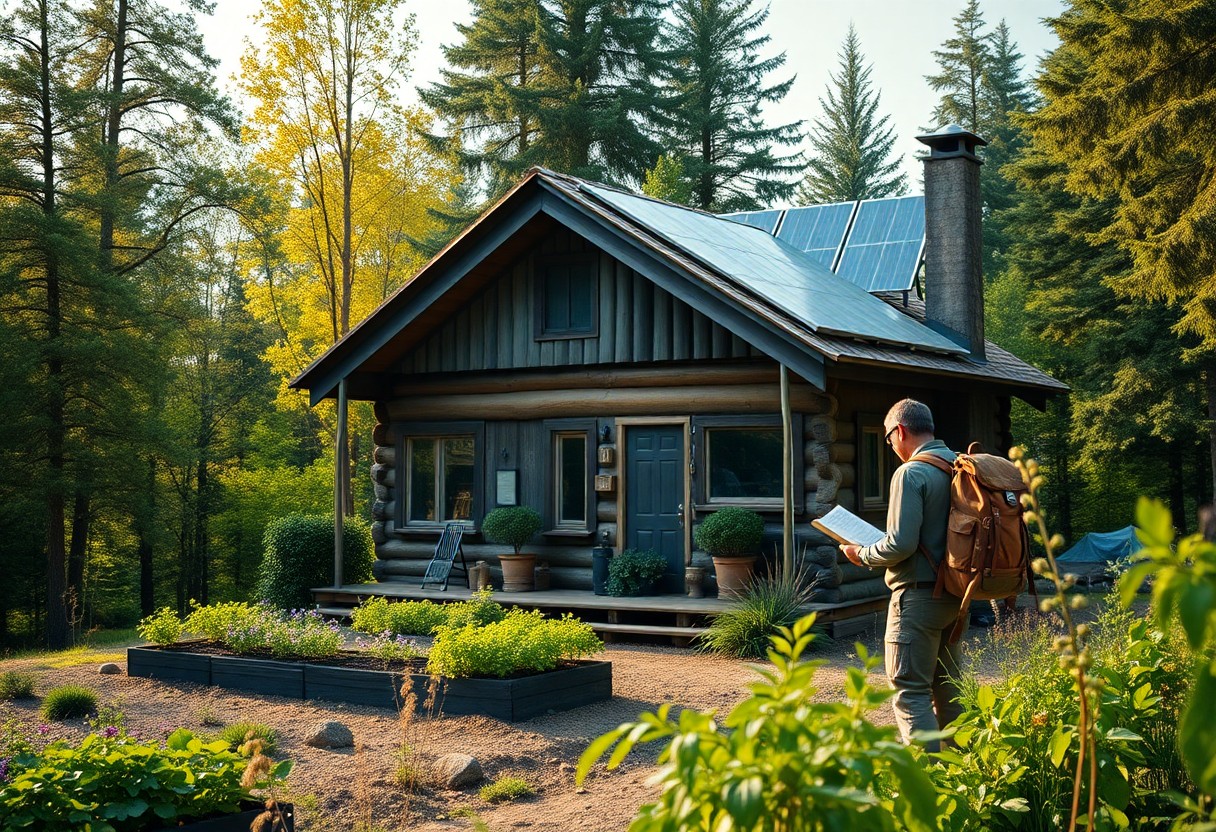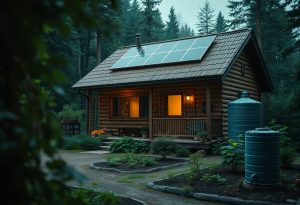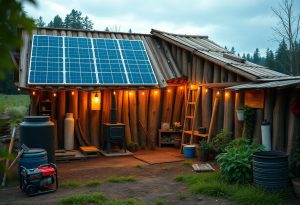Preppers understand the need for self-sufficiency and resilience in an ever-changing world. This guide provides you with important tips to thrive in an off-grid lifestyle, empowering you to become more self-reliant and prepared for various scenarios. From sustainable food sources to energy solutions, discover how to build a secure and efficient homestead that meets your needs. You’ll learn practical strategies that not only enhance your survival skills but also create a fulfilling and environmentally friendly way of life. Dive in and take the first steps toward ultimate independence.
Key Takeaways:
- Self-Sufficiency: Embrace sustainable practices like gardening, animal husbandry, and renewable energy sources to ensure independence from external systems.
- Preparedness: Develop comprehensive plans for emergencies by stockpiling necessary supplies, creating a secure shelter, and practicing survival skills regularly.
- Community Networking: Build relationships with like-minded individuals and local resources to exchange knowledge, support, and preparedness strategies for better resilience.

Understanding Off-Grid Living
The path to off-grid living involves embracing a lifestyle that is independent from modern utilities. This way of life allows you to take control of your resources, reduce your carbon footprint, and achieve self-sufficiency. Understanding the principles and challenges of off-grid living can prepare you for a sustainable future where you rely on nature and your skills.
Types of Off-Grid Living
The choices for off-grid living vary according to different lifestyles and locations. You may choose to fully disconnect from services or find a balance that suits your needs.
| Residential Off-Grid | Living in a self-sufficient home with renewable energy sources. |
| Mobile Off-Grid | Traveling and living in RVs or vans while minimizing resources. |
| Community Off-Grid | Participating in co-ops or eco-villages that share resources. |
| Remote Wilderness | Isolating yourself in nature with little to no modern amenities. |
| Urban Off-Grid | Finding ways to live sustainably within a city environment. |
The integration of these types can create a tailored off-grid lifestyle that aligns with your values and aspirations.
Factors to Consider Before Going Off-Grid
Some important factors to factor in when choosing off-grid living include your budget, location, and available resources. Understanding these aspects can significantly impact your experience and success.
- Your financial investment in equipment and land.
- Access to water sources and food production options.
- Availability of building materials and energy resources.
- Your preparedness for emergencies and natural disasters.
- Your family’s adaptability to off-grid challenges.
Perceiving all these aspects will ensure that your transition to off-grid living is sustainable and fulfilling.
Off-grid living presents many considerations that can shape your experience. You need to assess your skills in areas such as basic construction, legal requirements, and location specifics. Along the way, understanding your environment and community needs is imperative for success.
- Your physical stamina to handle manual tasks.
- Knowledge of legal regulations which may affect your plans.
- Understanding of climate conditions in your chosen area.
- Absorption of local wildlife behavior and safety precautions.
- Your mental resilience in facing challenges.
Perceiving these details helps you develop a robust plan for launching on your off-grid journey.
Tips for Preparing for Off-Grid Life
Any transition to off-grid living requires thorough preparation to ensure success. Start by assessing your needs and priorities, then consider the following tips:
- Research local regulations regarding off-grid setups.
- Choose a strategic location that offers access to water and natural resources.
- Make a comprehensive list of necessary supplies and equipment.
- Connect with others in the off-grid community for support and advice.
Recognizing the importance of these preparatory steps will make your transition smoother.
Essential Gear and Supplies
An effective off-grid lifestyle demands the right gear and supplies. Think about necessarys such as solar panels for power, water filtration systems, adequate food storage, and tools for gardening and maintenance. Investing in durable equipment can save you time and money in the long run.
Developing Skills for Self-Sufficiency
If you want to thrive in an off-grid environment, honing your self-sufficiency skills is necessary. This includes learning how to grow your own food, build shelters, and practice first aid.
Tips for self-sufficiency include focusing on specific skills like permaculture for sustainable agriculture, mastering woodworking for repairs, and understanding basic mechanics for equipment upkeep. It’s also advisable to become proficient in canning and preserving food, as this can keep you self-reliant for longer periods. Embrace each skill you learn as a step toward a more independent life.
Step-by-Step Guide to Transitioning Off-Grid
Despite the challenges that come with transitioning to an off-grid lifestyle, taking a methodical approach can simplify the process. Begin by assessing your current living situation and desired goals. This step-by-step guide will help you understand the key elements involved in making this significant shift.
| Step | Description |
|---|---|
| 1. Assess Needs | Evaluate your energy, water, and food requirements. |
| 2. Research Locations | Find suitable land that meets your off-grid living needs. |
| 3. Create a Plan | Outline your off-grid setup and budget accordingly. |
| 4. Gather Resources | Collect necessary tools, materials, and supplies. |
| 5. Set Up Systems | Implement solar, water, and waste systems. |
| 6. Test and Adjust | Evaluate your systems and make necessary modifications. |
Planning Your Off-Grid Setup
Any successful transition to an off-grid lifestyle starts with a solid plan. You’ll want to think about where you will live, how much energy you will need, and the types of food you plan to grow or source. Carefully mapping out your needs will save you time, effort, and resources as you commence on your off-grid journey.
Implementing Sustainable Practices
While moving off the grid, understanding and implementing sustainable practices is vital for your long-term success. You’ll want to focus on renewable energy sources, like solar or wind, to power your home while also considering water conservation and self-sufficient food sources.
Implementing sustainable practices is not only beneficial for your off-grid lifestyle but also helps the environment. Consider using rainwater harvesting systems to reduce dependency on municipal water and create a composting system to manage waste effectively. Establishing a permaculture garden will allow you to grow your own food, fostering a more independent and resilient living situation. Transitioning to an off-grid mindset involves embracing practices that not only support your needs but also create a positive impact on the environment.
Pros and Cons of Off-Grid Living
Now, understanding the pros and cons of off-grid living is crucial for making informed decisions about your lifestyle. Below is a breakdown of what you might gain and what challenges you may face while living off the grid.
| Pros | Cons |
|---|---|
| Increased self-sufficiency | Initial setup costs |
| Connection with nature | Limited access to amenities |
| Greater food security | Potential isolation |
| Lower environmental impact | Extreme weather challenges |
| Ability to live debt-free | Maintenance and repairs |
| Enhanced survival skills | Legal restrictions in some areas |
| Community of like-minded individuals | Learning curve for new skills |
| Reduced stress from modern life | Need for constant self-motivation |
Benefits of Off-Grid Lifestyle
Some of the main benefits of an off-grid lifestyle include achieving greater independence from utility companies and reclaiming control over your living environment. You’ll also find a deeper connection to nature, which can greatly enhance your mental well-being, and potentially lower your carbon footprint. Plus, cultivating your own food can lead to a greater sense of food security.
Challenges and Drawbacks
Challenges of off-grid living include the constant fight against nature’s elements and the necessity for self-discipline. Resources like water and electricity will require your time and effort to manage efficiently.
With off-grid living comes a list of significant challenges. You will face hurdles like the initial investment for systems such as solar panels and water filtration, along with potential isolation from modern conveniences. Weather conditions can impede your plans and it may prove to be arduous if you lack the knowledge and skills for maintaining your systems. Additionally, the need for continual self-motivation can weigh heavily, especially during tough times or unforeseen situations. Balancing all these factors is crucial for a successful transition to an off-grid lifestyle.
To wrap up
Hence, as you begin on your journey towards off-grid living, leveraging the tips outlined in this ultimate guide will empower you with the knowledge and skills needed to create a sustainable lifestyle. From renewable energy sources to practical gardening techniques, every aspect contributes to your self-sufficiency. Understanding the nuances of preparedness will not only enhance your survival capabilities but also strengthen your confidence in facing any challenges. With dedication and the right approach, you can cultivate a fulfilling off-grid existence tailored to your unique needs.
FAQ
Q: What is off-grid living?
A: Off-grid living refers to a lifestyle where individuals or families live independently from public utilities and services. This typically involves generating one’s own electricity, securing water through natural sources, managing waste without municipal services, and growing food sustainably. Off-grid living is often pursued by preppers and survivalists seeking self-sufficiency, resilience, and a lower environmental impact.
Q: What are some key components to consider when planning an off-grid living setup?
A: When planning an off-grid living setup, important components include energy generation (solar panels, wind turbines, or hydroelectric systems), water sourcing (wells, rainwater collection, or natural springs), waste management systems (composting toilets, gray water systems), and food production (gardens, greenhouses, or livestock). Additionally, understanding local building codes and securing land with suitable resources are important steps for a successful off-grid lifestyle.
Q: How can I generate power if I live off the grid?
A: There are various methods for generating power in an off-grid scenario. Solar panels are a popular choice due to their accessibility and decreasing costs. Wind turbines are effective in windy areas, while micro-hydro systems can provide consistent power if you have access to running water. Additionally, some off-gridders use backup generators that run on gasoline or biofuels for supplemental energy during low production periods.
Q: What skills are beneficial for someone living off-grid?
A: Off-grid living requires a diverse skill set to successfully manage daily life. Essential skills include gardening and food preservation (canning, drying), basic plumbing and electrical knowledge for maintenance, animal husbandry for those with livestock, knowledge of natural medicine for health, and self-defense skills for safety. Additionally, skills in DIY projects and woodworking can be extremely beneficial for building and maintaining structures.
Q: How can I ensure my off-grid system is sustainable?
A: To ensure your off-grid system is sustainable, focus on renewable resources for energy (like solar or wind), practice water conservation, and utilize permaculture principles for food production. Implementing efficient waste management – such as composting and recycling – can reduce your ecological footprint. It’s also important to regularly assess your resource use and adapt practices that enhance sustainability over time, maintaining a balance that protects and regenerates the natural environment.




